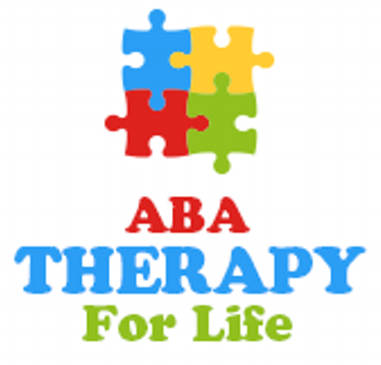Jul 28, 2022 in Therapy
Rape Trauma Syndrome
Rape trauma syndrome (RTS) is a type of PTSD that affects victims of rape
It's your turn now! Let's support each other by clicking "Helpful".
+1

DISCUSS #Relationship
DISCUSS #Parenting
Rape trauma syndrome (RTS) is a type of PTSD that affects victims of rape (PTSD). It is a type of PTSD that emerges as a result of sexual assault. RTS is most frequently linked with rape, although it can also be caused by other types of sexual assault, including attempted rape.
Major symptoms and stages of RTS are: as follows:
Re-Experiencing the Trauma:
Rape patients may experience recurring nightmares about the rape, flashbacks or an inability to block the rape incident from dorminating their thoughts. In my working experience, I find this to be a great challenge with refugee clients, originating from war torn regions who have been subjected to horrific and humiliating sexual assault that involved gang rape or the use of objects like gun butts inserted into their vaginal or anal areas.
Social Withdrawal symptoms are very common and often characterised by intentional desensitisation that may only serve as a short term coping mechanism, which, from a psycho dynamic perspective, may be triggered by any associated event. From my practice, I have also come to realise that desensitisation is intertwined with avoidance behaviours and actions that may hinder the healing process if they are not addressed as appropriate. To that end, I apply relevant theoretical approaches, eclectically, bearing in mind that these are not learned behaviours since they have come about as a result of an imposed or intrusive vilolent experience
Avoidance Behaviors and Actions:
Victims may additionally choose to avoid any feelings or thoughts that could trigger anything relating to the rape experience.
Increased Physiological triggers:
These symptoms are characterised by exaggerated startle response, hypervigilance, insomnia or ifficulties in concentration
Having said that; experience is unique to each individual. Peopje xperiencing rape trauma syndrome often approach their trauma in a series of levels
The Major Stages of RTS
ACUTE STAGE
The acute stage begins days or weeks after a sexual assault and commonly lasts for a few days or weeks. Quiet often, the victim begins experiencing symptoms of the intense stage after the initial level after an assault has worn off. At this stage, symptoms may additionally include:
Diminished alertness or hyper-alertness
Numbness
Cognitive issues relating to thinking and reasoning
Disorganized comprehension of information
Nausea and vomiting
Paralyzing anxiety
Obsessive compulsive behaviours
Confusion about regular life
Acute sensitivity to the reaction of various people
High risk of suicidal thoughts or self harm
OUTWARD ADJUSTMENT STAGE
Outward adjustment often begins when the Acute symptoms are receding , and might last for a few months or even severa years, as per my observatio in practicef if there is consistency in therapeutic intervention. Also,stable environmental influences are paramount for effective healing. That is why my approach is also supported by the family systems to enhance effective recovery. During this stage, the victim may additionally outwardly appear to have “moved on” from an assault, but there could also be invisible severe inner turmoil hidden in ther mental processes. Coping mechanisms may vary from one person to the next and this is normally characterised as follows:
Minimization (pretending “everything is fine”, or that the assault “wasn`t a huge deal”)
Dramatization (can not stop speaking about the assault)
Suppression (refuses to speak about the incident) I often come across cases of selective mutism
Explanation (analyzes what happened)
Flight mode (moving home, city or country
Victims may additionally display other type of symptoms that may necessitate involvement of other relevant professionals, for example; :
Poor health
Continuing anxiety
Sense of helplessness
Hypervigilance
Inability to maintain close relationships
Persistent fear
Mood swings, anger and hostility
Sleep disturbances which include insomnia, or nightmares
Flashbacks and intrusive thoughts about the assault
Dissociation with the “self”
Panic attacks
Victims on the Outward Adjustment Stage may depend on their level of resilience as a coping mechanisms, some of which may be strengthened by support from family or friends or community organisations but others may be counterproductive withinside the prolonged term, which could result in self-harm, drug or alcohol abuse, uncharacteristic sexual behaviors or disorganised anti social behaviours with unreasonable defensive mechanisms as a way of regaining control.
At this stage, patients may feel overwhelmed by all sorts of changes from their normal way of living
They can be vulnerable to a great extent becausr the rape incident in itself is intrusive and power issue so the normal sense of safety has been brutally grabbed from them. In most cases, I find that there is normally a loss of intetest in sports activities that they previously enjoyed
Reluctance or fear to enter new relationships.
Questioning of sexual identity or sexual orientation is common with victims associated by someone who is not from the same sexual orientation
Disrupted sexual relationships or sexuality, which includes adjusting to theur usual sexual relations, inhibited sexual response and flashbacks to the rape incident in the course of sexual activity, or hyper-sexuality which results in vulnerability to abuse
UNDERGROUND STAGE
During the underground stage, patients may feel the urge to move on to their previous normal lifestyle. .I consider this to be a personal battle to regain grabbed power that could last for years or even a lifetime. If the environment is safe without disruptions they can build on their coping mechanism despite emotional issues surrounding the assault that may remain unresolved for life. In the underground stage patients may:
move on with their lives to a point where they may pass days or months without reliving the experience. As a coping mechanism, they may block houghts of the assault to a subconscious level and might not want to talk about the incident or any of the related issues. This may create problem in concentrating and could also be a causal link to depression. They may experience self dissociation or symptoms of hypervigilance
REORGANIZATION STAGE
The Reorganization Stage can be more effective while there is an out of doors hobby like gym or any other recreational activity. It is more of a transitional stage to emerge as a survivor from the Underground or Outward Adjustment stages. This can be the most challenging time for the survivor and their loved ones. The length of the reorganization stage varies from one individual to the next and might relapse while a survivor returns to Outward Adjustment or Undergroun stages. Having said that, with the help of therapeutic intervention for trauma. The survivor woukd be able to move onto the Renormalization stage. Reorganization is enhanced by synchronising internal and outdoor normalcy to adjust emotional stability n different settings. These transactions impact a lot on family systems since they are close enough to observe or experience the flactuating behaviors that the victim may display. Quite often, they may want to believe that the problem has been resolved. Victims also display sudden , fear, and confusion at.this stage as strong surges of feelings about the assault may suddenly reoccur. At this stage, the victim may also be prone to
sudden fear or phobias that may be related specifically to the assailan, places or conditions in which the ssault, or may have taken place. These phobias often include:
Fear of crowds, fear of being left on their own in their own home or public places or fear of men or women. In practice, with asylum seekers , I often come across clients with a phobia of soldiers uniforms. They fear going out on their own the fear of getting touched by anyone can be quite extreme.
Each client presents with specific fears related to physical features or habits of the assailant. for example; deodorant, colour of eyes or haiir; alcohol stench or cigarettes, body build etc It is very common for the patient to be generally suspicious of strangers or to display paranoiac tendencies.
Loss of apetite nausea and vomiting, nightmares, insomnia, violent fantasies and suicidal thoughts in context, are common
RENORMALIZATION STAGE
At this stage; survivors would have built on their coping mechanism to a point where their experience would not have so much control on their life. Having said that; I would not want to make it sound like a balance of probability for every client that walks into my clinic because everybody is different and their personal experiences are unique to themselves. Getting back again to the renormalisation stage; the sexual assault or rape would cease to be the survivor s point of focus and feelings of guilt or shame would be gradually ceasing. Survivors woukd instinctively regain the ability to recognize and address post traumatic effects of maladaptive coping mechanisms. Realistically, they may look upon the sexual assault and its aftermath with sadness and feelings generated by the assault leaves a scar for life.
In my practice of over 10 years, including university placements, the scar remains for life which could explain the reason why I have intermittent clients. It is rare to come across rape victims who would want to associate with the assailants or anybody associated with the assailants. That is why I always, highly recommend refugee status for gang rape victims from war torn countries. The nature of those assaults has impacted so much on their daily lives to a point where mere thoughts of going back there, exacerbates their mental illness. As part of the healing process, some victims may want the assailants to be brought to justice otherwise they will continue to struggle with closure. Having said that, I have to point out that individual experiences vary. Those displaying strong symptoms of Stockholm syndrome may actually defend the perpetrators or may even emulate the perpetrators behaviours in many ways.
This article is dedicated to all rape victims all over the world.
My integrative, therapeutic intervention to treating RTS is manly backed by Cognitive behavioural theory CBT, Psycho dynamic, Families systems theory; Humanistic - unconditional positive regards .I also facilitate spar facilities: Saunna, Jaccuzi, steam room and gym
Dr Ven Eyarhono








 Thank you for your help!
Thank you for your help!